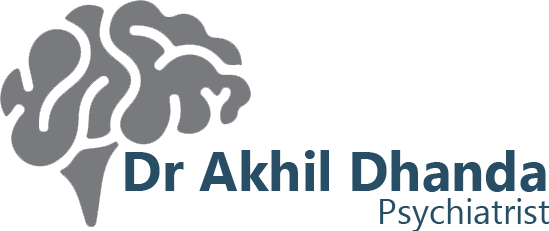Emerging Research And Therapies In Sleep Disorder Treatment
Sleep disorders affect millions of individuals worldwide, impairing their ability to achieve restorative sleep and impacting their overall health and well-being. Fortunately, ongoing research and advancements in medical science are shedding light on innovative therapies and treatments for various sleep disorders. From cutting-edge technologies to novel pharmaceuticals, emerging research offers hope for improved management and alleviation of sleep-related issues. In this article, we will delve into some of the latest breakthroughs in the field of sleep disorder treatment.
https://www.youtube.com/@akhildhanda8867
Precision Medicine Approach
One of the most promising trends in sleep disorder treatment is the adoption of precision medicine techniques. By leveraging genetic information, biomarkers, and other personalized data, researchers aim to tailor treatments to individual patients’ specific needs. For example, genetic testing can identify individuals who are more likely to experience certain sleep disorders, allowing for targeted interventions and therapies.
Cognitive Behavioral Therapy for Insomnia (CBT-I)
While pharmacological treatments have traditionally been the go-to option for managing insomnia, cognitive behavioral therapy for insomnia (CBT-I) has gained traction as a highly effective non-pharmacological intervention. CBT-I addresses the underlying psychological and behavioral factors contributing to insomnia, such as maladaptive sleep habits and negative thought patterns. Recent research has demonstrated the long-term efficacy of CBT-I in improving sleep quality and duration, with effects that persist even after treatment cessation.
Digital Health Solutions
The integration of technology into sleep disorder management has opened up new avenues for diagnosis, monitoring, and treatment. Wearable devices, smartphone applications, and other digital health solutions offer convenient and accessible tools for tracking sleep patterns, identifying disturbances, and delivering personalized interventions. These technologies enable users to gain insights into their sleep habits and make informed decisions to optimize their sleep health.
Chronotherapy
Chronotherapy involves adjusting the timing of sleep and wakefulness to synchronize with the body’s natural circadian rhythms. Emerging research suggests that aligning sleep schedules with biological rhythms can improve sleep quality and mitigate symptoms of certain sleep disorders, such as delayed sleep phase disorder and shift work sleep disorder. By strategically timing exposure to light, melatonin supplementation, and sleep scheduling, chronotherapy aims to reset the body’s internal clock and promote healthier sleep-wake cycles.
Pharmacogenomics
Pharmacogenomics explores the relationship between genetic variations and individual responses to medications. In the context of sleep disorder treatment, pharmacogenomic testing can help identify genetic factors that influence an individual’s likelihood of experiencing adverse drug reactions or variability in treatment efficacy. By tailoring medication regimens based on genetic profiles, healthcare providers can optimize therapeutic outcomes and minimize the risk of side effects.
Neurostimulation Therapies
Neurostimulation therapies involve the targeted modulation of neural activity to regulate sleep patterns and alleviate sleep-related symptoms. Techniques such as transcranial magnetic stimulation (TMS) and transcranial direct current stimulation (tDCS) hold promise for treating sleep disorders by influencing brain regions involved in sleep regulation and arousal. Early studies have shown encouraging results in terms of improving sleep quality and reducing sleep latency in individuals with insomnia and other sleep disorders.
Pharmacological Innovations
While existing pharmacological treatments for sleep disorders often come with side effects and limitations, ongoing research efforts are focused on developing novel compounds with improved efficacy and safety profiles. From orexin receptor antagonists for the treatment of narcolepsy to dual orexin receptor antagonists for insomnia, pharmaceutical companies are exploring innovative drug targets and mechanisms of action to address unmet needs in sleep disorder management.
Mind-Body Interventions
Mind-body interventions, such as mindfulness meditation, yoga, and tai chi, have gained recognition for their potential to promote relaxation, stress reduction, and sleep enhancement. Research indicates that these practices can modulate physiological processes involved in sleep regulation, such as autonomic nervous system activity and neuroendocrine function. By incorporating mind-body techniques into comprehensive treatment plans, healthcare providers can offer patients holistic approaches to improving sleep quality and overall well-being.
Conclusion
In conclusion, emerging research and therapies in sleep disorder treatment hold tremendous promise for revolutionizing the way we address sleep-related issues. From personalized medicine approaches to innovative technologies and mind-body interventions, the landscape of sleep disorder management is evolving rapidly. By embracing these advancements and leveraging multidisciplinary strategies, healthcare providers can empower individuals to achieve restorative sleep and optimize their quality of life. As we continue to unravel the complexities of sleep disorders, the future holds great potential for transformative breakthroughs in sleep medicine.
For any further queries, Plz visit psychiatristdrakhildhanda.com or you can check our social media accounts, Facebook, Instagram







